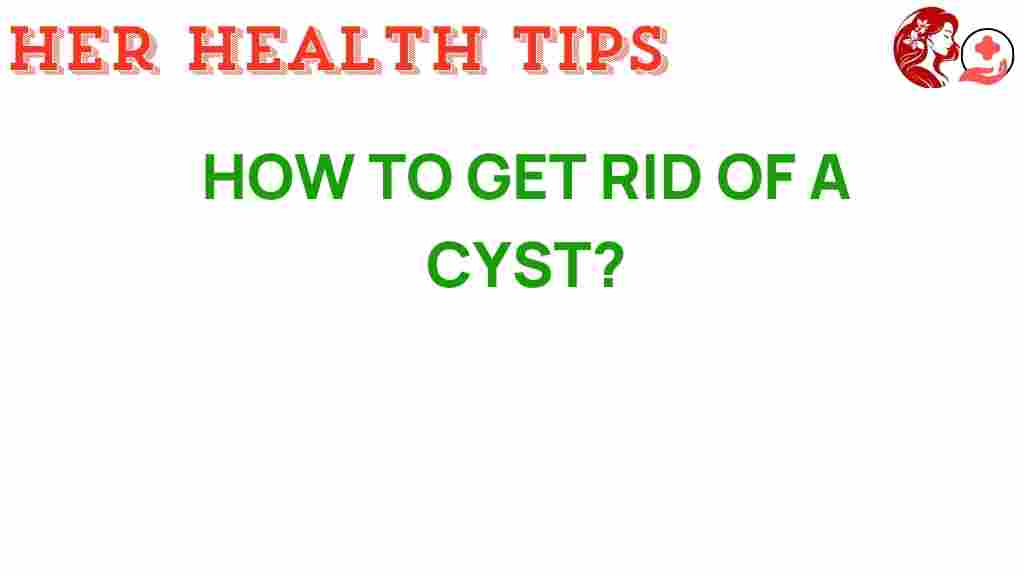Cyst Treatment: Unraveling the Mystery of Effective Cyst Removal
Cysts are common skin conditions that can cause discomfort and concern. While they are usually harmless, many individuals seek effective cyst treatment for cosmetic or health reasons. In this comprehensive guide, we will explore various methods for cyst removal, including medical advice, home remedies, and wellness tips that can help prevent their formation. By understanding the symptoms and treatment options available, you can take charge of your skin health.
What is a Cyst?
A cyst is a closed sac-like structure that can form in various tissues of the body. It can be filled with air, fluid, or semi-solid material. Cysts can occur anywhere, including the skin, organs, and even bones. Most cysts are benign and painless, but they can become problematic if they become infected or grow large.
Common Symptoms of Cysts
Identifying a cyst is crucial for effective cyst treatment. Here are some common symptoms:
- Visible lump: A noticeable bump on the skin, often smooth and rounded.
- Redness or inflammation: The skin surrounding the cyst may appear red or swollen.
- Discomfort or pain: Cysts can sometimes be tender to the touch or cause discomfort.
- Drainage: Some cysts may leak fluid or pus if they become infected.
Understanding Cyst Causes
Cysts can develop for various reasons, including:
- Blocked glands: Sebaceous cysts often form when oil glands become blocked.
- Infections: Infected hair follicles can lead to cyst formation.
- Genetics: Some individuals may be genetically predisposed to developing cysts.
- Skin conditions: Conditions like acne can also contribute to cyst development.
Step-by-Step Process of Effective Cyst Treatment
When it comes to cyst treatment and removal, several options are available. Below are methods ranging from home remedies to medical interventions:
1. Home Remedies for Cyst Treatment
Many people prefer to try home remedies before opting for medical treatment. Here are some effective home remedies:
- Warm Compress: Applying a warm compress can help reduce inflammation and promote drainage.
- Tea Tree Oil: Known for its antibacterial properties, tea tree oil can be applied to the cyst for natural healing.
- Aloe Vera Gel: This soothing gel can help alleviate irritation and promote skin healing.
- Turmeric Paste: Turmeric has anti-inflammatory properties and can be made into a paste for application.
2. Medical Cyst Removal Options
If home remedies do not yield results, consider consulting a healthcare professional for cyst treatment. Here are common medical options:
- Incision and Drainage: A doctor can make a small incision to drain the contents of the cyst.
- Surgical Removal: For larger or recurring cysts, surgical excision may be necessary.
- Injection Therapy: Corticosteroid injections can reduce cyst size and inflammation.
3. When to Seek Medical Advice
It’s essential to seek medical advice if:
- The cyst is painful, red, or swollen.
- You notice changes in size or shape.
- There is drainage of pus or fluid.
- You have a fever or feel unwell.
Health Tips for Cyst Prevention
Preventing the formation of cysts can be managed through several health and skin care tips:
- Regular Cleansing: Keep your skin clean to prevent blocked pores.
- Moisturize: Use non-comedogenic moisturizers to maintain skin hydration.
- Healthy Diet: A balanced diet rich in vitamins and minerals can promote skin health.
- Stay Hydrated: Drink plenty of water to keep your skin hydrated and flush out toxins.
- Avoid Picking: Do not pick at your skin or existing cysts, as this can lead to infection.
Skin Care Routine
Incorporating a solid skin care routine can help prevent cysts:
- Cleanser: Use a gentle cleanser suited for your skin type.
- Exfoliation: Regular exfoliation can help remove dead skin cells and prevent clogged pores.
- Toner: Use a toner to balance skin pH and minimize pores.
- Moisturizer: Apply a lightweight, non-comedogenic moisturizer.
- Sun Protection: Use sunscreen daily to protect your skin from UV damage.
Troubleshooting Cyst Treatment
Even with the best cyst treatment methods, some individuals may face challenges. Here are some troubleshooting tips:
- Persistent Cysts: If a cyst does not improve with home remedies, seek medical evaluation.
- Infection Signs: If you notice increased redness, pain, or drainage, consult a doctor.
- Recurring Cysts: Discuss with your healthcare provider about underlying causes if cysts keep returning.
Conclusion: Taking Charge of Your Skin Health
Cysts may be a common skin issue, but with the right knowledge and tools, you can effectively manage and treat them. Whether you opt for home remedies or medical cyst removal, remember to prioritize your skin health through preventative measures and a solid skin care routine. Always consult with a healthcare professional if you have concerns about cysts or if you notice any concerning symptoms.
For more information and guidance on skin health and wellness, check out this comprehensive health resource. Remember, your skin is a reflection of your overall health, so taking care of it is essential!
This article is in the category Conditions and created by HerHealthTips Team
